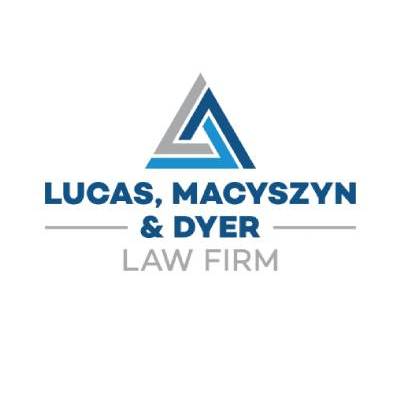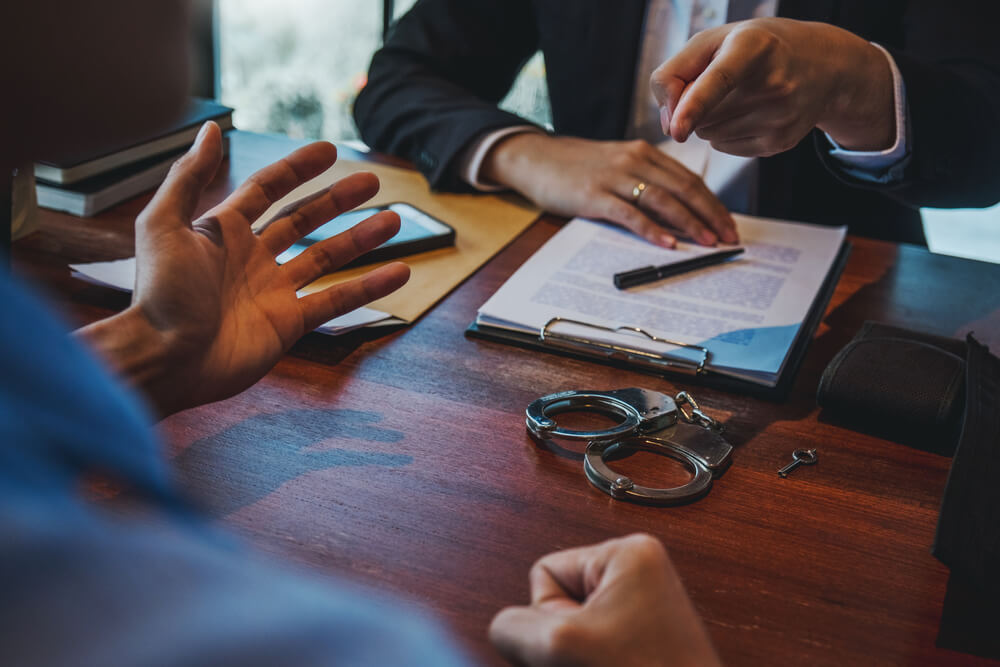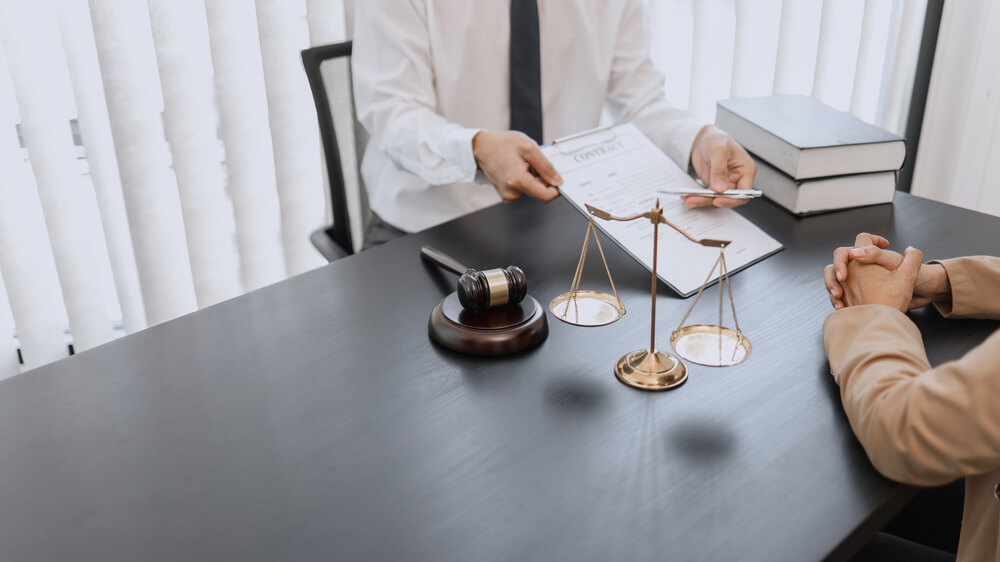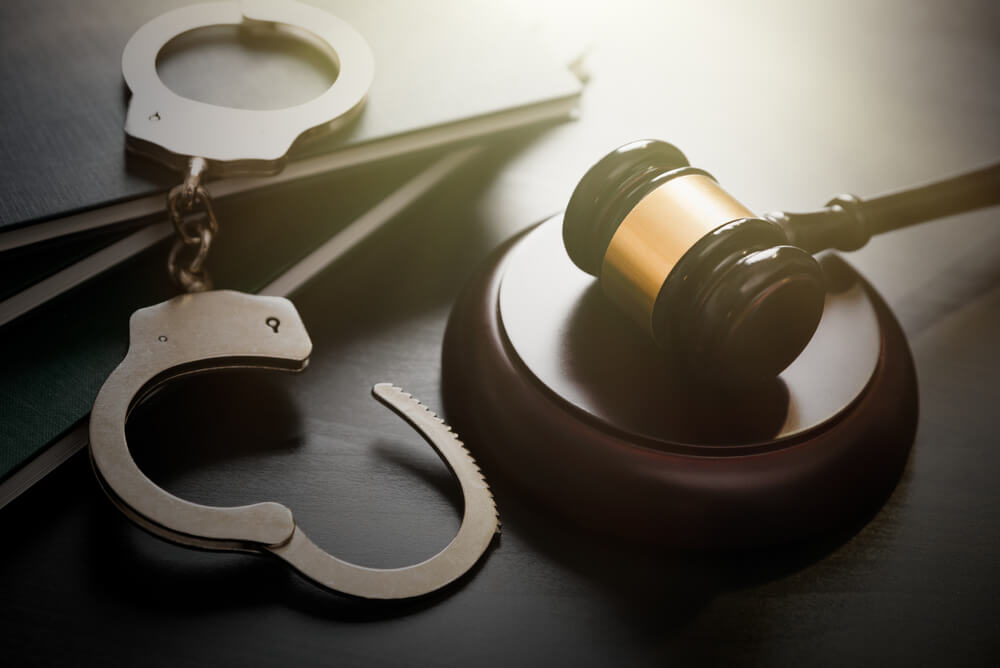
A criminal defense attorney is a lawyer who represents individuals facing criminal charges. Criminal lawyers are a crucial part of the legal system. These lawyers ensure that there is balance in the justice system and that someone protects the legal rights of criminal defendants. If you want to learn more about criminal defense attorneys, continue reading. Contact a criminal defense lawyer in your area immediately if you have a pending case.
A Defense Lawyer’s Job Description

Criminal defense lawyers work hard to represent their clients well. An attorney’s work is not limited to inside the courtroom. Cases are won and lost based on the attorney’s prep work.
Examples of a criminal defense lawyer’s routine work include:
- Interview and prepare witnesses for trial
- Complete legal research to ensure that the facts support the crime charged and argue that the charges should be reduced or dismissed.
- Investigate the incident to gain an independent understanding of the facts of the case
- Create a case strategy that increases the odds of a successful outcome for the client
- File written motions in court
- Counsel and advise clients
- Negotiate reduced sentences and plea bargains with prosecutors
What Are My Rights as a Criminal Defendant?
Criminal defense lawyers work to protect the constitutional rights of people charged with crimes. You have the following rights if the police arrest you for a criminal offense.
The Fifth Amendment Miranda rights give every person accused of a crime:
- The right to remain silent
- The right to an attorney
- The right to an appointed defense counsel if you cannot afford to hire an attorney
If you face criminal charges, you have a Sixth Amendment right to attorney representation for every stage of the case.
A criminal defense attorney is a buffer between a person accused of committing a crime and the judicial system. You can use your attorney as a resource for information, advice, and protection of your rights.
Why Should I Hire a Private Criminal Defense Attorney?
It is best to hire a criminal defense attorney whenever police arrest you or prosecutors charge you with a crime. In the United States, criminal defendants have the right to represent themselves in court, but that is too huge of a risk. All criminal charges are serious matters, and you should take advantage of the skill and experience of a qualified criminal defense attorney.
How Can a Criminal Defense Lawyer Help Me?
If you find yourself facing a criminal charge, you need the services of a good criminal defense lawyer. Here is how the right attorney can help you with your case:
Negotiation
Resolving your case begins with negotiations with the prosecutor. A criminal defense attorney has experience working with the prosecutor, so they know if the state is willing to dismiss or reduce charges. If the prosecutor is unwilling to dismiss the charges, a criminal defense lawyer can negotiate a less severe punishment.
Knowledge of the Law
Criminal defense lawyers have experience in criminal law and procedure. A criminal defense attorney can help you fight the charges against you and ensure the system doesn’t railroad you. Additionally, a lawyer can answer your questions so that you understand each step of the process.
Access to Resources
Private defense lawyers typically have access to resources that help them build a successful case strategy. Examples include expert witnesses, investigators, and reconstructionists. These professionals can help you build a strong case and help you avoid the consequences of criminal charges against you.
Public Defender versus Private Defense Attorney

A public defender and a private defense lawyer both handle criminal defense. In cases where defendants cannot afford private counsel, the court appoints a public defender.
Public defenders serve an important role. Anyone charged with a crime in the United States has the right to an attorney. When a criminal defendant cannot afford an attorney, a public defender is appointed to represent them and protect their constitutional right to representation.
Public defenders usually have large caseloads. A defendant may not use the public defender’s caseload unless they meet their state’s indigency requirements. The court assigns the public defender who represents the defendant, eliminating the defendant’s choice for representation.
Private criminal defense lawyers usually represent far fewer clients at a single time than public defenders.
Because they have fewer clients, hiring a private defense lawyer may provide the following advantages for your case:
- More time to dedicate to your case
- More resources to allocate to investigations and expert witnesses
- More access to your attorney
What Should I Look for in a Criminal Defense Attorney?
The attorney you hire for your criminal case is an important decision. You must make an informed decision before hiring counsel. Consider the following as you choose which criminal defense lawyer is right for you.
Experience and Success Record
Your criminal defense attorney should have experience representing clients with your charges and have had successful outcomes. If the attorney has successfully represented clients with similar charges to yours, you may feel that you can trust their advice about your case.
Qualifications
The attorney you hire should be licensed to practice law in the jurisdiction where the charges are pending. Check the website of your state’s bar association to find out if the attorneys you interview have active licenses in good standing.
Reputation in Legal Community
The criminal defense lawyer’s reputation in the legal community can impact your case. It is beneficial for defense lawyers to network with other attorneys and to have good relationships with prosecutors and judges. The more your attorney knows about how the prosecutors and judges typically settle cases, the better they can advise you about the best way to move forward with your case.
Knowledge of Local Rules and Procedures
Your attorney should be familiar with the local court and procedural rules. Without knowledge of these rules, an attorney cannot properly represent a client. A good lawyer knows deadlines, how to introduce evidence at trial, how to question witnesses on the stand, etc. Reading past client reviews on the firm’s website or online reviews can give you an idea of the lawyer’s understanding of the rules.
Communication Skills
Good attorneys are good communicators. Your attorney should return your calls or emails within a reasonable period. They should also respond promptly to prosecutors about your case. Communication also applies to written motions filed in court.
Courtroom Confidence
Your attorney should know their way around a courtroom. A criminal defense attorney can craft a good case strategy and present their argument to a judge or jury. Confidence in the courtroom is important because confidence may persuade a judge or jury to agree with your side.
Problem Solving Skills
A good criminal defense attorney must be a master problem solver. When a client comes into an attorney’s office, they bring a problem with them that they cannot solve on their own. You must be confident that your criminal defense attorney has the skills to review your case and create a plan of action to give you the best outcome possible.
Fees
Ask about the fee structures that your attorney offers during the initial meeting. Descriptions of common payment structures that criminal defense attorneys use are below. A lawyer might bill fees for general representation separately from litigation expenses, which may include postage, expert witness fees, costs of investigations, and more.
How Do Criminal Defense Lawyers Charge for Their Services?
Before you hire a defense attorney, you should find out about the fee structures the attorney offers. After you get charged with a crime, one of your primary concerns is likely how you will pay for a defense attorney.
Many attorneys offer one or more of the following payment options:
- Flat fee – A flat fee is a payment structure that requires the client to pay a one-time fee to the attorney to provide a single legal service. Flat fees are usually a good option for simple cases. In cases where attorneys know the charge will resolve relatively quickly, they may offer flat fees instead of hourly rates. A flat fee may be appropriate if you get charged with a traffic or another misdemeanor offense.
- Retainer fee – A retainer is a down payment to the attorney to secure representation for a particular case. A retainer fee is separate from the hourly fee for the attorney’s services. Depending on the attorney, they may bill by the hour after they deplete the retainer fee. Some attorneys may use the retainer fee as a way for the client to reserve their time only and bill hourly from the start of representation.
- Hourly rate – Many attorneys charge by the hour for their services. If you hire an attorney to represent you at an hourly rate, you are paying for the time the attorney spends on your case. Attorneys charge per unit of time spent working on your case.
- Payment plans – Some attorneys may offer a payment plan for the retainer fee. Whether a payment plan is available depends on the attorney’s business practices. Speak to each attorney you interview about if they offer payment plans during the initial consultation.
Does a Criminal Defense Lawyer Charge More Depend on the Offense?
Legal representation fees may vary depending on the charges you face. Criminal charges fall into one of two categories- misdemeanors and felonies.
A misdemeanor is considered a relatively minor criminal offense. It is less severe than a felony, but still a very serious matter. Misdemeanors are generally punishable by no more than one year in jail, depending on the jurisdiction.
Because misdemeanors are less serious crimes than felonies, less time is usually required to resolve the case. Since the lawyer will spend less time representing you on the charges, the amount you pay in legal fees is lower. A criminal defense attorney may often use a flat fee payment structure for misdemeanor charges.
A felony is a major criminal offense and is punishable by confinement in prison for more than one year. Felonies typically make for complex cases and require a longer commitment from a criminal defense attorney.
Because of the nature of representing someone charged with a felony, the criminal defense attorney may require a retainer to secure their representation. Depending on the charge, the retainer may be large. An attorney may ask for a hefty retainer if a potential client wants the attorney to represent them on a capital murder case because it will take a lot of time. Additionally, the attorney may charge an hourly rate for their time.
How Does Someone Contact Their Attorney if They Are in Jail?
Some criminal defendants are in custody immediately after an arrest or pending trial. A concern they have is how they will speak to their lawyer, but criminal defense lawyers make it a priority to speak to their clients while they are in jail. How communication between the lawyer and the incarcerated client happens depends on the jurisdiction.
Common ways that criminal defense attorneys speak to their clients who remain in custody pending trial include:
- Phone calls. If the client has permission, they can call the attorney at their office. This is common right after an arrest.
- Jail visit. A criminal defense attorney may take a trip to the jail to visit their client and build a case strategy for trial.
- Letters. Lawyers may write clients letters or vice versa.
- Emails. In some jails, there is an email system that inmates can access. If that is available, the client can communicate with the lawyer via email.
How Do I Find a Criminal Defense Attorney?
You should do your research before you hire a defense attorney. A good place to start is by looking at attorney websites. You can also read past client reviews online. If you have family or friends who have used a criminal defense attorney, ask them about their experience. Sometimes, the best match for attorneys and clients happens through word of mouth.
If you face criminal charges, you need a criminal defense lawyer working to protect your rights. Criminal defense attorneys dedicate their careers to representing people accused of crimes and ensuring that the criminal justice system is fair for everyone.



